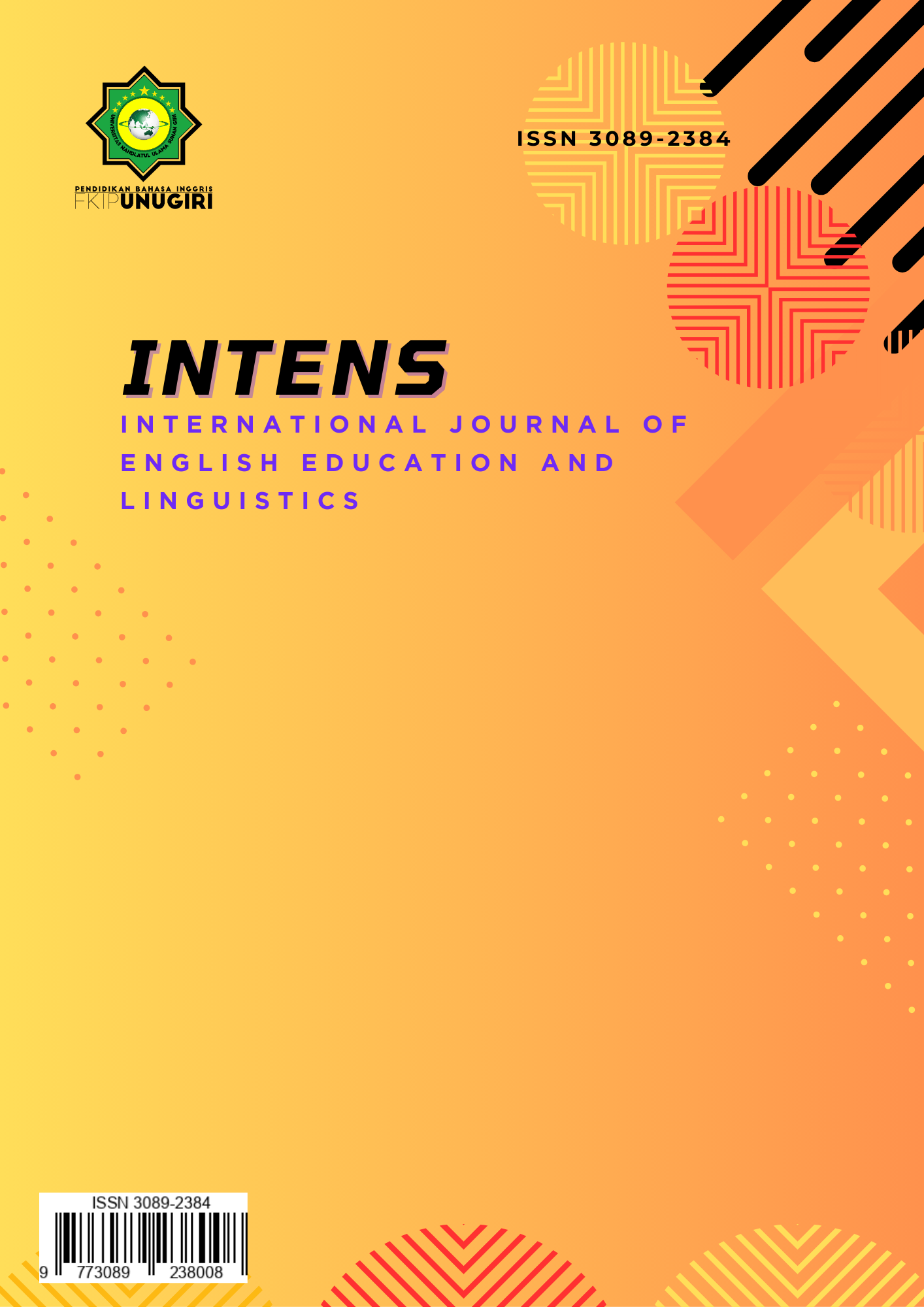EXPLORING UNDERGRADUATE EFL LEARNERS’ PSYCHOLOGICAL PROBLEMS IN WRITING AND COMPLETING THE THESIS

DOI:
https://doi.org/10.32665/intens.v2i02.2206Keywords:
Keywords: Writing thesis, psychological factors, Writing thesis, psychological factorsAbstract
Many students tend to procrastinate writing their thesis because they feel overwhelmed or don't know where to start. This phenomenon can be overcome by keeping a regular schedule, dividing tasks into smaller chunks, and setting realistic deadlines. feel worried that their thesis will not reach the expected standard. The purpose of this research is to analyze psychological factors that influence students in writing a thesis. Researchers used qualitative descriptions. This research method used questionnaires and interviews as instruments. Questionnaires are used to find detailed information on related factors that influence students in writing a thesis. The results of the psychological problem faced by undergraduate EFL learners show that English language education students have the highest score for the factors that affect writing thesis, namely from the results of the anxiety factor questionnaire shows the highest score gets 49.45% of students agree if they feel worried when comes to the advisor and the lowest inhibition factor gets 1.85% while for the motivation factor 2.5% of students have motivational support from both parent to quickly complete thesis, elf-esteem 2.5% of students agree if they have choose interesting title on writing a thesis, extroversion 2.35% the students was agree always optimistic about what they write in the thesis, empathy 12.18% the student agree the heart is easily touched when the friends and supervisor are giving salutation to the difficulty of writing thesis, risk taking 2.28% the students was will never lose, as long learn to win and improve the thesis. While the undergraduate EFL students overcome the problem of writing and completing a thesis is when meeting with your supervisor, focus on questions and solutions rather than feeling stressed or worried. If they are unsure about something, ask them honestly and open up.
References
Asrianto, A., Rohmayadevi, L., & Umi Rokhayati. (2020). Teachers’ Strategies in Managing the Class.Eduvelop, https://doi.org/10.31605/eduvelop.v3i2.602 3(2), 82–89.
Cevallos, L. F. E., & Soto, S. T. (2020). EFL classroom management. Mextesol Journal, 44(2). 38
INTERNATIONAL JOURNAL OF ENGLISH EDUCATIONS AND LINGUISTICS Vol. 02 No.02 2025. DOI: 10.32665/intens.v2i02.2207
Marzano, Robert J.,Jana Marzano, and Deborah Pickering (2003). Classroom Management That Works: Research-Based Strategies for Every Teacher.
Alexandria, Va.:ASCD Dardjowidjojo, S. (2003a). The Role of English in Indonesia: A Dilemma.K.E. Sukamto (Ed).
Rampant Language, Education, and Culture: Collection of Essays by Soenjono Dardjowidjojo, Jakarta: Indonesian Torch Foundation.
Creswell, John W. Educational Research Fourth Edition. USA ; Pearson Education, 2002.
Jhonson, R. Burke - Larry Christensen. Educational Research 5th Edition. USA : SAGE
Publications.
Brown, H. Douglas. (2001). Teaching by Principle. An Interactive Approach to Teaching. Electronic Journal of Foreign Language Teaching, Vol. 1, No. 1, pp.13-26.
Ahmadi, Abu and Prasetyo, Tri, Joko. Bandung:Pustaka Scita. 2005. Strategi Belajar Mengajar.
Rudyanto, A. (2014). Descriptive Analysis of Classroom Management Strategies.
Syarifah, Eva F . (2016). Classroom Management Strategies in an EFL Class. Internet The 5th ELTLT.Conference Proceding Journal, ISBN 978-60273769-3-9 (October 2016).
Crstal, D. (2003). The Cambridge Encyclopedia of the English Language, (2nd Ed.)
Cambridge: Cambridge Univercity Press.
 Pdf Download: 0
Pdf Download: 0













